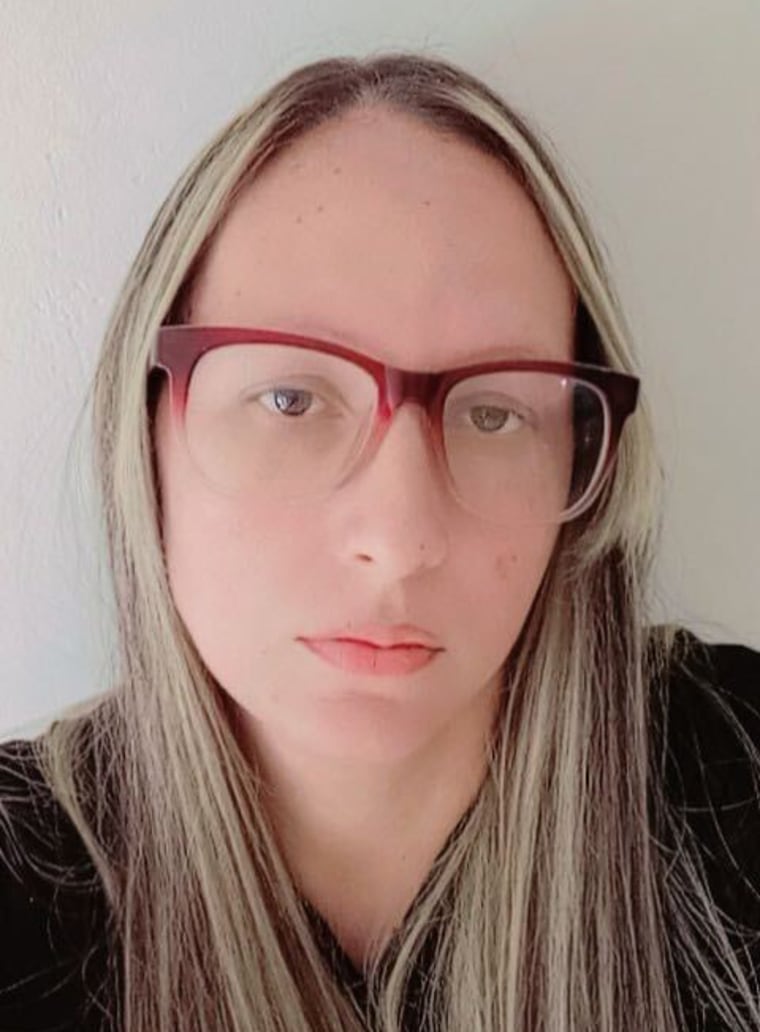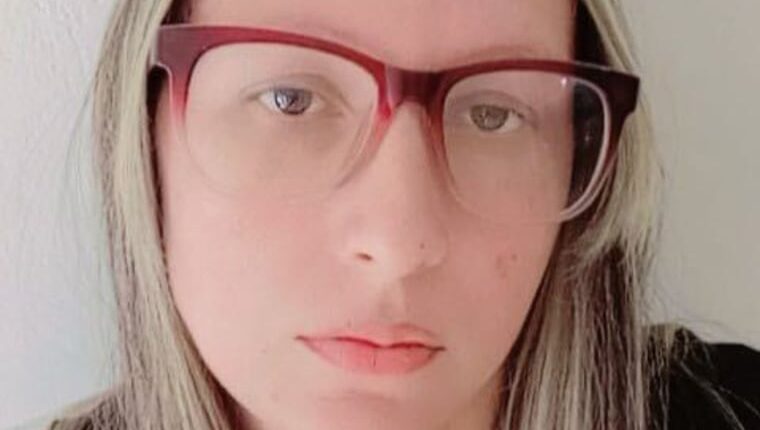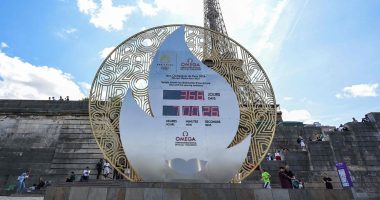MIAMI — Since President Joe Biden rolled out a parole program to accept a limited amount of migrants from Venezuela, Cuba, Nicaragua and Haiti, an underground industry has been brewing that is ripe for fraud.
One of the conditions to be able to apply for the parole program is to have a sponsor in the United States. These supporters, usually close relatives, are required to provide financial support for at least two years.
Although it was not designed for people to profit from it, many deals are being made quietly through word of mouth and the messaging app WhatsApp — there’s even advertising for sponsorship on social media. Prices typically range from $8,000 to $10,000, but many of them are scams.
A resident of Cuba, a young doctor whose name is being withheld for safety reasons, told NBC News she was scammed by a Facebook user. She thought she had found someone reliable who could be her ticket to the U.S.
“Most of them say they have relatives in Cuba that will refund the money if anything goes wrong, but they’re all lies,” the woman, 28, said.
A relative of the young doctor made a $1,800 transfer to the “sponsor,” money her family in Cuba had spent years saving. They were told $800 was for the application process and $1,000 was for an attorney.
Once the transfer was made, the person disappeared and blocked the woman from Facebook.
“Many people I’ve contacted since then ask for money in advance. When I tell them I won’t pay ahead of time, they immediately block me,” the woman said.
The Cuban doctor said she knows people who paid “sponsors” and received travel documents — only to find out the travel documents were false.
“I’ve heard of people who paid others for this type of service and they just disappear,” said John de la Vega, a Miami area immigration attorney.
“They’re preying on people who are desperate and vulnerable that are trying to get to United States,” said de la Vega.
A lot of the fraud can be found on social media platforms like Facebook and Instagram.
In one Facebook post, a user named “sponsor” says, “we offer sponsors for 10 thousand dollars per person paid through Zelle from the United States or in cash in Cuba. 5 thousand in advance and 5 thousand when the papers are ready, before leaving Cuba.”
In another post catering to Venezuelans, a person advertises their services with “combo” package deals. There are three options, the most expensive consisting of sponsorship, airport pickup and a month’s stay at the supporter’s home for $8,200. The post states “tax” included.
Florida is home to the largest communities of Venezuelans, Cubans, Nicaraguans and Haitians in the U.S. and many there are receiving requests from families and friends overseas to become sponsors.
But not everyone meets the requirements to be a sponsor, which include having legal immigration status and proving they have enough financial resources. Some relatives are simply unwilling to take on the responsibility to become sponsors, even if they meet the criteria. Supporters can also be organizations or businesses.
“When they approved the humanitarian parole program for Venezuelans I was receiving about 10 calls a day from people in Venezuela asking for us to sponsor them,” said Patricia Andrade, who helps recently arrived Venezuelans through her nonprofit, Raíces Venezolanas, in Miami.
She said her organization does not have the capacity to sponsor people.
Those lacking sponsors often turn to social media, where scams abound. And after a coalition of 20 Republican states filed a lawsuit seeking to shut down the program, desperation has grown among those seeking to come to the U.S.
In a Facebook page called “Sponsors for Venezuelans to USA” with over 2,500 members, many write about their frustration over people offering to be sponsors but demanding thousands of dollars before beginning the application.
“They all ask for money in advance and at the end, it’s a scam,” one user wrote.
Another wrote, “How sad to see how they mock the necessity of others.”
The federal government does review sponsorship applications for possible fraud and scams.
In a statement to NBC News, U.S. Citizenship and Immigration Services said: “The agency carefully vets every prospective supporter through a series of fraud- and security-based screening measures before confirming a properly submitted I-134A, Online Request to be a Supporter and Declaration of Financial Support.”
The statement also said that “USCIS thoroughly reviews each reported case of fraud or misconduct, and may refer those cases to federal law enforcement for additional investigation.”
But many of the scams target people and take their money before they’ve had a chance to apply.
USCIS said they advise beneficiaries to look out for individuals who attempt to contact them online or through social media accounts and offer to be a supporter or connect the beneficiary to a supporter in exchange for a fee or other form of compensation.
They list on their website ways to report fraud and tip to avoid scams.
‘We fall for things because of the desperation’

Venezuelan Yovanna Dimatteo, 38, left for neighboring Colombia one year ago with her husband and two children looking for a better life. After the Biden administration announced the parole program for Venezuelans, Dimatteo and her husband decided to take advantage of the opportunity, as the situation for them was deteriorating.
Dimatteo said she has contacted churches, organizations and individuals in the U.S. — and the ones who were willing to be sponsors asked for money. She said she called one church in Utah and the person she spoke to asked for $1,500 in advance and $1,500 after arriving. Other people she contacted requested her to pay between $8,000 and $10,0000.
“There are people out there capable of making things up and innocent people fall for it,” Dimatteo said. “We fall for things because of the desperation and the anguish we’re facing.”
The parole program was initially rolled out in October 2022 for Venezuelans and was extended last month to include Cubans, Nicaraguans and Haitians. As per the program, up to 30,000 people from each country are eligible for humanitarian parole every month, entitling them to work in the U.S. for two years. Anyone who tries to cross the border illegally is returned to Mexico and denied a chance to seek asylum.
The program was announced as Biden struggled with a record number of migrants crossing the U.S.-Mexico border, including the largest number of Cubans in history.
Source: | This article originally belongs to Nbcnews.com









